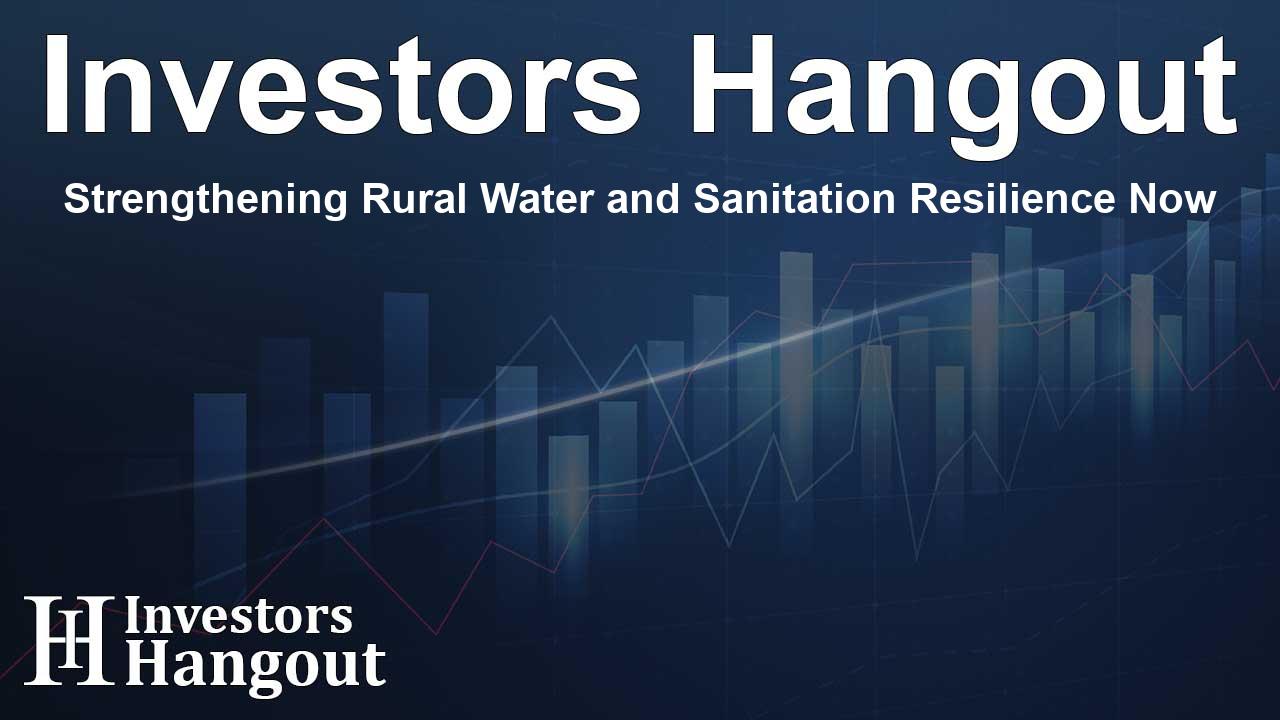Strengthening Rural Water and Sanitation Resilience Now

Transforming Rural Water and Sanitation Systems
In a significant effort to improve rural water and sanitation, a recently released report from the Pacific Institute highlights more than 130 strategies tailored for rural communities throughout the United States. This comprehensive approach aims to boost climate resilience, addressing unique challenges faced by these areas in accessing safe and reliable water. The Pacific Institute, known for its commitment to equitable water solutions, emphasizes the need for localized methods that reflect community values and needs.
Challenges of Rural Communities
Rural areas often struggle with persistent water and sanitation issues. Many households lack basic access to running water and adequate plumbing facilities. Likewise, existing systems may not consistently meet crucial health standards, a situation worsened by the ongoing impacts of climate change. These challenges require immediate action and adaptive strategies to ensure the health and well-being of rural populations.
Insights from Experts
According to Dr. Shannon McNeeley, an authority at the Pacific Institute, the report addresses a knowledge gap concerning rural water systems. It offers actionable insights specifically designed for rural contexts, fostering a deeper understanding of the local factors at play. By emphasizing community involvement in water management, the work aims to empower rural leaders and water managers to make informed decisions that affect their populations.
Framework for Implementation
The report categorizes its strategies into eight essential areas: Built Infrastructure, Technology and Innovation, Natural Infrastructure, Management and Planning, Funding and Financing, Knowledge and Information, Capacity Building, and Law and Policy. These categories serve as a roadmap for rural communities, guiding them through the implementation of effective systems that encourage equity and sustainability. Each category comes enriched with examples of successful applications and resources to inspire community action.
Asset-Based Approaches
One of the key elements of this report is its focus on asset-based strategies. Rather than concentrating solely on challenges, the report highlights the strengths and creativity found within rural communities. For instance, some recommendations include developing emergency response plans to bolster community preparedness during climate crises and prioritizing local knowledge in planning processes.
Strategic Solutions for Resilience
As climate change escalates and frequency of disasters increases, the need for resilient water and sanitation systems becomes ever more critical. The report showcases successful initiatives already being adopted by communities. Such steps include:
- Implementing emergency response systems that equip rural water operators with the tools necessary to manage climate emergencies effectively.
- Engaging rural communities throughout all stages of water and climate planning to ensure that local knowledge informs decision-making.
- Providing financial assistance programs aimed at upgrading decentralized water infrastructure while reducing the financial strain on households.
A Path Forward for Rural Communities
Climate resilience is not merely about surviving challenges; it is about thriving through them. Rural communities possess unique characteristics that, when harnessed effectively, can lead to innovative solutions. This report serves as a catalyst for positive change, pushing communities to explore their capacities and implement sustainable practices for the future.
Frequently Asked Questions
What are the main goals of the report from the Pacific Institute?
The report aims to provide actionable strategies for enhancing the climate resilience of water and sanitation systems in rural communities.
How can rural communities benefit from the strategies outlined in the report?
By adopting these strategies, rural communities can improve access to reliable water and sanitation, mitigate climate impacts, and empower local leaders.
What challenges do rural communities face regarding water access?
Many rural areas deal with inadequate infrastructure and limited resources, often affecting access to safe and affordable water.
Can you provide examples of strategies mentioned in the report?
Examples include creating emergency response plans and involving community input in planning processes for water systems.
What is the significance of an asset-based approach in this report?
This approach highlights and builds on the strengths of rural communities, focusing on their potential to create effective solutions rather than solely on challenges.
About The Author
Contact Dylan Bailey privately here. Or send an email with ATTN: Dylan Bailey as the subject to contact@investorshangout.com.
About Investors Hangout
Investors Hangout is a leading online stock forum for financial discussion and learning, offering a wide range of free tools and resources. It draws in traders of all levels, who exchange market knowledge, investigate trading tactics, and keep an eye on industry developments in real time. Featuring financial articles, stock message boards, quotes, charts, company profiles, and live news updates. Through cooperative learning and a wealth of informational resources, it helps users from novices creating their first portfolios to experts honing their techniques. Join Investors Hangout today: https://investorshangout.com/
The content of this article is based on factual, publicly available information and does not represent legal, financial, or investment advice. Investors Hangout does not offer financial advice, and the author is not a licensed financial advisor. Consult a qualified advisor before making any financial or investment decisions based on this article. This article should not be considered advice to purchase, sell, or hold any securities or other investments. If any of the material provided here is inaccurate, please contact us for corrections.
